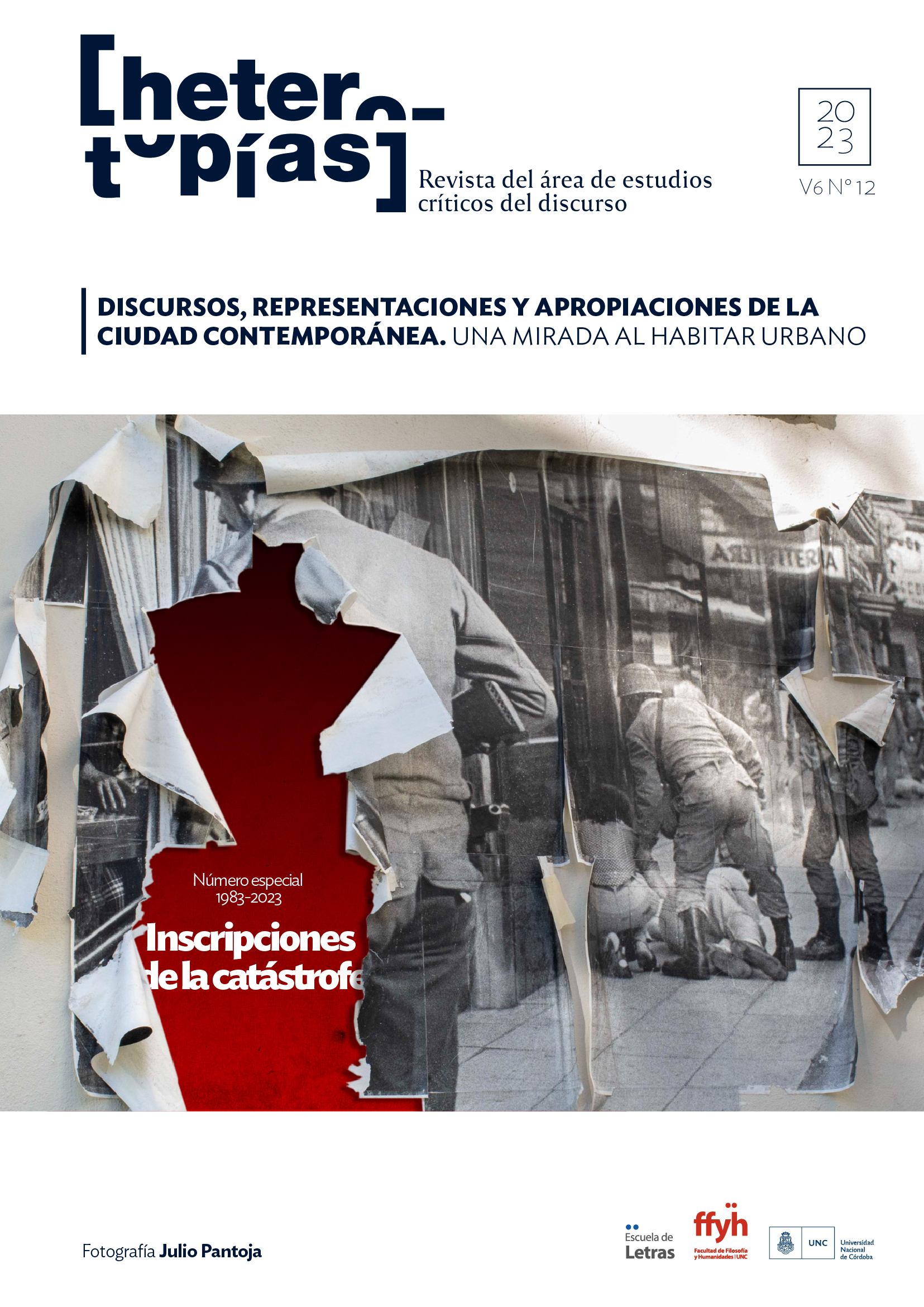The Angelelli Plan in La Rioja: proposals and challenges towards the socio-urban integration of popular neighborhoods
Main Article Content
Abstract
The urbanization process in Latin America is characterized by marked inequalities in access to land and housing, which causes the popular sectors to deploy various strategies for self-production of habitat in an informal manner. In this framework, over the last decades, informal habitat has been configured as a social problem in the region and different intervention approaches have been developed from state public policies: definitive eviction, relocation to new housing complexes or on-site urbanization. Each of these alternatives accounts for the ways in which the problem of access to land and housing has been defined in specific times and spaces. In Argentina, we consider that since the creation of the National Registry of Popular Neighborhoods and the Law of Socio-Urban Integration of Popular Neighborhoods, a guide was established for the definition, design and execution of programs promoted by governments of different jurisdictional levels, based on the recognition of the socio-territorial and political configurations of each city. In this context, we are interested in analyzing the socio-urban integration policy promoted by the government of the province of La Rioja from 2020. In that year, crossed by the socio-health crisis, the Angelelli Plan for Socio-urban Development and Integration was developed. In this article we analyze the foundations and implementation of this policy of socio-urban integration of popular neighborhoods and its scope in the capital city of La Rioja to respond to the problem of informal habitat. The results of the work allow us to recognize continuities, ruptures and contributions of this provincial policy to contribute to rethinking the national socio-urban integration policy.
Downloads
Article Details

This work is licensed under a Creative Commons Attribution-NonCommercial-ShareAlike 4.0 International License.
Those authors who have publications with this journal, accept the following terms: Those authors who have publications with this journal, accept the following terms:
a. The authors will keep their copyright and guarantee to the journal the right of first publication of their work, which will be simultaneously subject to the Creative Commons Attribution - Non-Commercial - Share Alike (by-nc-sa) Attribution License; no commercial use of the original work or any derivative works is allowed, the distribution of which must be done with a license equal to the one that regulates the original work.
b. Authors may adopt other non-exclusive license agreements for the distribution of the published version of the work (e.g., deposit it in an institutional telematic archive or publish it in a monographic volume) provided that the initial publication in this journal is indicated.
c. Authors are allowed and recommended to disseminate their work through the Internet (e.g. in institutional telematic archives or on their website) before and during the submission process, which may lead to interesting exchanges and increase the number of citations of the published work. (See The effect of open access).
How to Cite
References
Abramo, P. (2008). El mercado del suelo informal en favelas y la movilidad residencial de los pobres en las grandes metrópolis: un objeto de estudio para América Latina. Territorios, (18-19), 55-73.
Avila, M. (2021). La incidencia de la Política Federal de Vivienda en el desarrollo urbano reciente de la ciudad de La Rioja. En M. C. Marengo (Ed.), Transformaciones urbanas y políticas públicas: reflexiones para una agenda de investigación en hábitat (pp.195-215). Editorial de la Facultad de Arquitectura, Urbanismo y Diseño de la Universidad Nacional de Córdoba.
Benza, G. y Kessler, G. (2021) El impacto de la pandemia en América Latina: retrocesos sociales e incremento de las desigualdades. Revista Laboratorio, (31): 12-33.
Clichevsky, N. (2009). Algunas reflexiones sobre informalidad y regularización del suelo urbano. Revista Bitácora Urbano Territorial, 14(1), 63-88.
Cravino, M. C. (2023). Paradigmas de intervención estatal en asentamientos populares en América Latina (1970-2020). Cuaderno Urbano, 34 (34), 187-209.
Del Río, J. P. (2015). La vivienda social y la cuestión urbana. Consideraciones teóricas para el análisis de las políticas de hábitat. Estudios de Hábitat, 13; (1), 76-92
Di Virgilio, M. M., y Serrati, P. S. (2019). Déficit habitacional [data set]. Publicado en https://mapa.poblaciones.org/map/9801.
Duhau, E. (2002). Dimensiones socio-políticas de la irregularidad y la regularización de los asentamientos populares.
Elorza, A. L., Rodríguez Alvarado, M., y Monayar, V. (2019). ¿Concesión estatal o conquista social? El Registro Nacional de Barrios Populares como política social frente a la cuestión habitacional en la ciudad de Córdoba, Argentina. Cuaderno Urbano, 26 (26), 49-68.
Guevara, T. A., Marigo, P., y Wallace, J. (2018). Integración urbana y políticas públicas: el caso del registro nacional de barrios populares de Argentina: decreto n 358/2017. Oculum Ensaios, 15 (3), 455-473.
Jordan, R., Riffo, L., y Prado, A. (2017) Desarrollo sostenible, urbanización y desigualdad en América Latina y el Caribe. Dinámicas y desafíos para el cambio estructural. Naciones Unidas, Santiago.
Maneiro, M.; Farías, A.; Olivera, H. (2020) Espacialidades y temporalidades como lentes para entender la propagación del COVID-19 en el sur del conurbano. Revista Ensambles, 7 (13): 43-71.
Marengo, C. y Elorza, A. L. (2009). Globalización y políticas urbanas: La política habitacional focalizada como estrategia para atenuar condiciones de pobreza urbana: los programas implementados en Córdoba y los desafíos pendientes. Cuaderno Urbano, 8(8), 0-0.
http://arq.unne.edu.ar/publicaciones/cuaderno_urbano/cu_8/archivos/marengo_elorza.pdf
Marengo, M., Elorza, A., & Avalos, P. (2023). Desigualdad e injusticia espacial en contexto de pandemia. El caso de dos barrios de vivienda social en Córdoba, Argentina. Cuadernos de la Facultad de Humanidades y Ciencias Sociales. Universidad Nacional de Jujuy, 0(63), 133-158.
http://revista.fhycs.unju.edu.ar/revistacuadernos/index.php/cuadernos/article/view/926/pdf
Wagner, R. F. (2018). Los asentamientos informales como cuestión: revisión y perspectivas|Informal settlements as a question: Review and perspectives. Oculum Ensaios, 15(3), 399-411.
